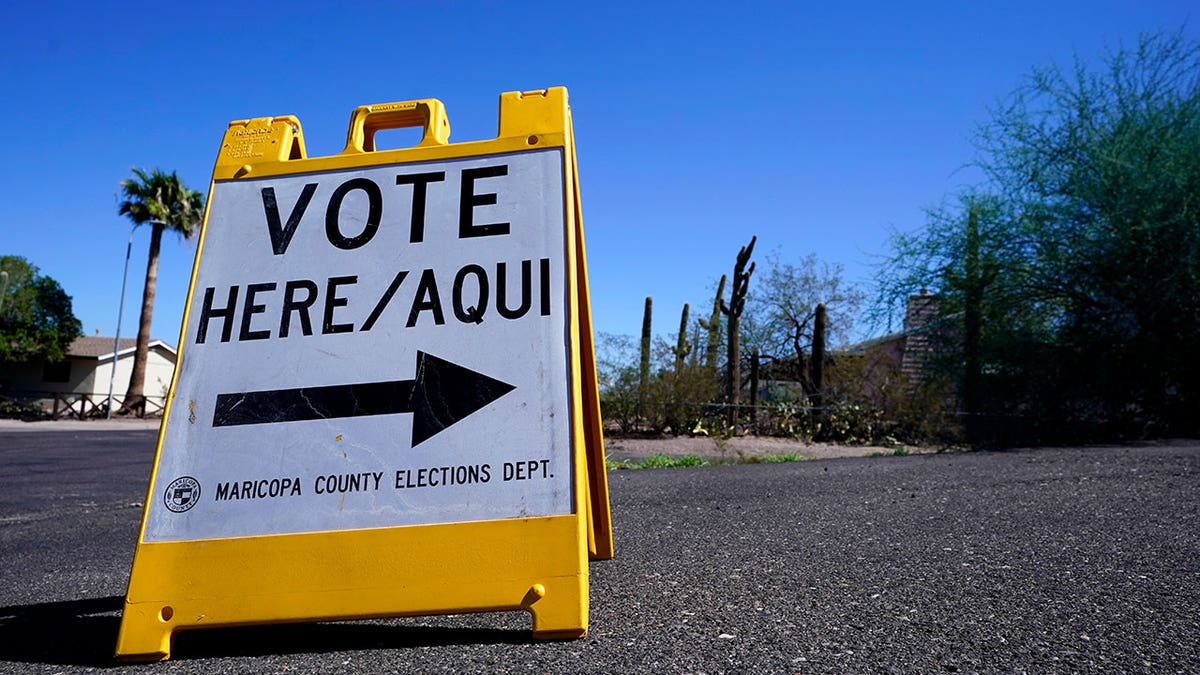'Latinx' and other woke 'inclusive language' has 'gone overboard,' warn liberal pundits: 'It's a joke'
Two CNN guests on Thursday night said that the left has gone too far with terms like "Latinx" and other supposedly "inclusive language" that "nobody has even heard of six months ago."
The widespread debate over "Latinx" has brought rare agreement among some Republicans and Latino Democrats, who support decisions to remove the term from government documents for different reasons.
While the term was coined 20 years ago to be an inclusive and gender-neutral word for people of Latino descent, "Latinx" has garnered increased popularity on the left over the last several years, while polls show a vast majority of Americans are unfamiliar with the term. Some say the term results from liberal "wokeism," while others claim the word breaks the Spanish language and, in doing so, is a form of cultural appropriation.
Democratic lawmakers in Connecticut introduced a bill last month prohibiting state agencies from using "Latinx" in official communications, the latest indication of political backlash against the gender-neutral word.
In Connecticut, Democratic Rep. Geraldo Reyes Jr., who introduced the bill, said the term was "offensive and unnecessary."

Sarah Huckabee Sanders, governor of Arkansas, moved quickly to ban "Latinx" after coming into office. (Al Drago/Bloomberg via Getty Images)
"The Spanish language has been around for 1,500 years, and it identifies male, female and neutral gender," he added, noting the sparse use of the word in Latin American nations.
Arkansas became the first state in the country to ban "Latinx" in government documents after Republican Gov. Sarah Huckabee Sanders signed an executive order on her first day in office last month.
A new report from The New York Times also highlighted the opinions of several other Latino Democrats who agree the word has no place in government correspondence.
Rep. Ruben Gallego, D-Ariz., has repeatedly criticized "Latinx," claiming that it represents a term outsiders impose on a minority community. He also asked his staff to avoid the term.
Others have said the "x" ending is not a plural original to the Spanish language and thus "whitewashes" the word.
GOV. SARAH HUCKABEE SANDERS BANS 'LATINX' FROM ARKANSAS GOVERNMENT DOCUMENTS
Jorge Bonilla, the Director of Media Research Center Latino, told Fox News Digital that legislation from Democrats excluding the term from government documents was merely a reflection of the opinion of their constituents.
"The liberal media insist on casting these Hispanic Democrats as anomalous for wanting to exclude the term 'Latinx' from official documents. But polling shows that they are simply reflecting the will of their constituents, who have overwhelmingly rejected a term that has been found to be divisive and coercive," Bonilla said. "Hispanics continue to reject the ongoing bastardization of the Spanish language in furtherance of compelled inclusion."
Indeed, a 2019 poll conducted by the Pew Research Center found that only around one-quarter of Hispanics were familiar with the word "Latinx," and just 3% used it when referring to themselves.
A 2022 Gallup research poll found similar results. Only 4% of Hispanic Americans preferred "Latinx" to describe their ethnic group. Fifty-seven percent said the label didn't matter when offered "Hispanic," "Latino" and "Latinx"; 23% said Hispanic and 15% preferred Latino.

A sign in Maricopa County tells Americans where to vote in both English and Spanish. (AP Photo/Ross D. Franklin)
In 2021, a survey from Bendixen & Amandi International found that 40% of respondents were offended by the term.
But some voices, speaking with The Times, disagreed with the idea of doing away with "Latinx."
For example, Connecticut advocacy group Unidad Latina en Acción Director John Lugo said the state's attempt to ban the term was "an attack on our diversity."
"We should not be policing the language that people are using to describe their identity," Lugo said.
CLICK HERE TO GET THE FOX NEWS APP
Other groups created new words entirely, foregoing the options of "Hispanic," "Latino" and "Latinx." The Progreso Latino Fund, a part of the nonprofit Community Foundation for Greater New Haven, changed their mission statement to include "Latine" as a gender-neutral term.
"We decided that 'Latine' would be more in tune with the Spanish language," Liana Garcia, the fund's staff liaison, said. "It was the way of equitably valuing everyone's dignity."











































